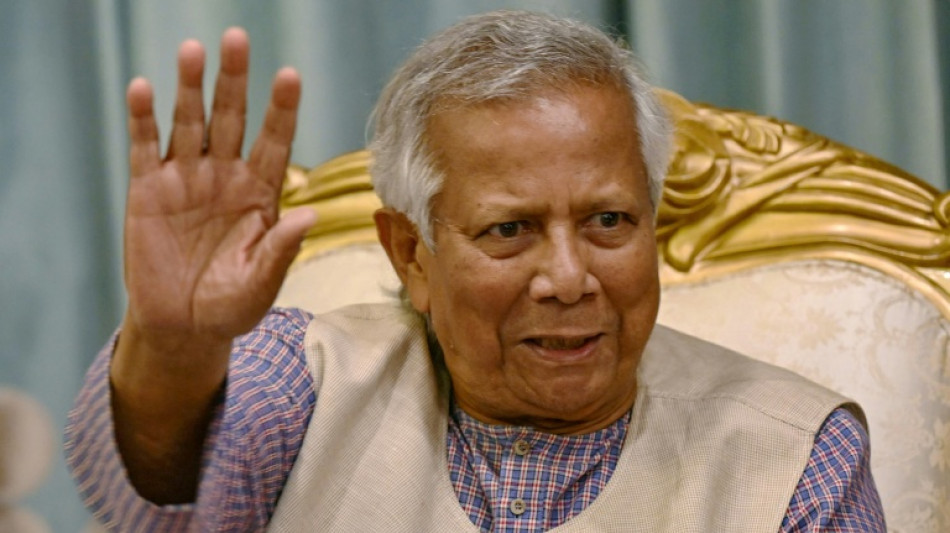
-
 How Ronaldo's La Liga ownership foray turned sour in Valladolid
How Ronaldo's La Liga ownership foray turned sour in Valladolid
-
Stokes strikes as England force Zimbabwe to follow-on
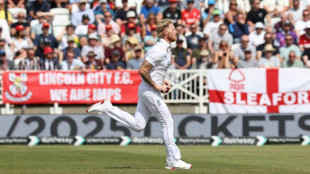
-
 'At my own risk', Andreeva vows to continue doubles despite singles success
'At my own risk', Andreeva vows to continue doubles despite singles success
-
Billy Joel cancels dates over brain condition

-
 Thousands hail Spurs' Europa League heroes in victory parade
Thousands hail Spurs' Europa League heroes in victory parade
-
Brazil great Ronaldo sells majority stake in Valladolid

-
 UK retailer suspends Labubu toy sales amid safety fears
UK retailer suspends Labubu toy sales amid safety fears
-
Gauff takes French Open 'motivation' from Madrid, Rome losses
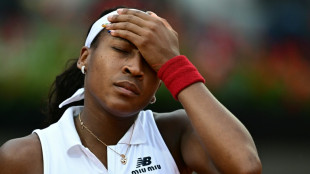
-
 Emery 'proud' of Villa even if top-five bid fails
Emery 'proud' of Villa even if top-five bid fails
-
Leclerc tops Monaco practice to boost hopes of repeat home win

-
 Nuno urges Forest to seal Champions League place for Awoniyi
Nuno urges Forest to seal Champions League place for Awoniyi
-
Suriname president vows oil bonanza won't hit carbon-negative status
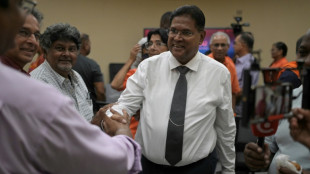
-
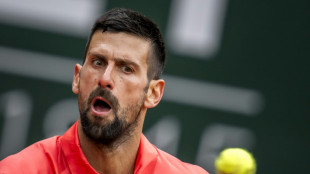 Djokovic closes on 100th ATP title by reaching Geneva final
Djokovic closes on 100th ATP title by reaching Geneva final
-
Twenty-year term sought for French surgeon in mass sex abuse trial
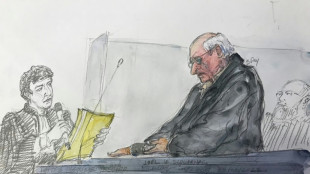
-
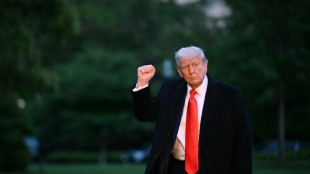 Stock markets fall as Trump threatens tariffs on EU, Apple
Stock markets fall as Trump threatens tariffs on EU, Apple
-
Sinner expects 'different atmosphere' at French Open after doping ban

-
 Rivalry with Sinner 'great' for tennis, says Alcaraz
Rivalry with Sinner 'great' for tennis, says Alcaraz
-
Barca the team others look up to now: Bonmati

-
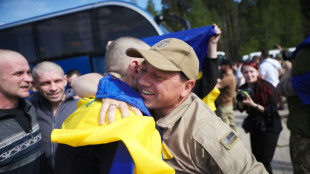 Ukraine, Russia begin biggest prisoner swap of war
Ukraine, Russia begin biggest prisoner swap of war
-
German court says Meta can use user data to train AI
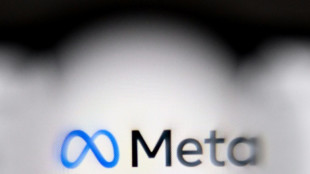
-
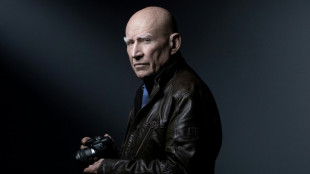 Sebastiao Salgado, photojournalism elevated to art
Sebastiao Salgado, photojournalism elevated to art
-
Trump fires new 50% tariff threat at EU, drawing stiff response
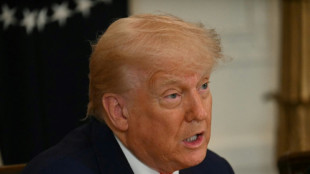
-
 Pedersen wins Giro stage 13 as Del Toro extends lead
Pedersen wins Giro stage 13 as Del Toro extends lead
-
Latest round of US-Iran nuclear talks ends in Rome
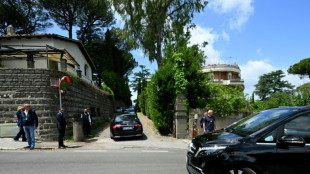
-
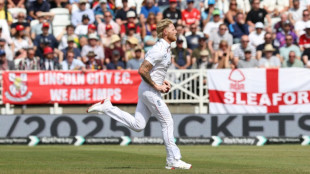 Stokes strikes on England return as Bennett stars for Zimbabwe
Stokes strikes on England return as Bennett stars for Zimbabwe
-
S.Africa moves to ease black empowerment law under Starlink pressure
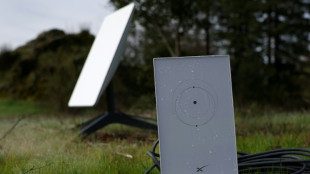
-
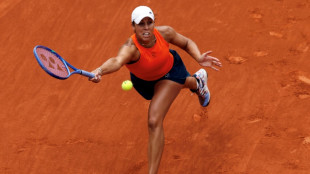 Keys back in Grand Slam mode in Paris after 'elusive' major triumph
Keys back in Grand Slam mode in Paris after 'elusive' major triumph
-
Twenty-year term sought for French surgeon in mass patient abuse trial
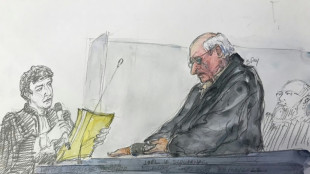
-
 'People don't know me', says defiant Swiatek ahead of French Open defence
'People don't know me', says defiant Swiatek ahead of French Open defence
-
Trump fires new tariff threats at Apple and the EU
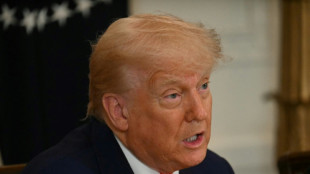
-
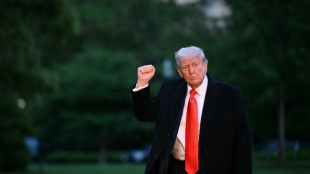 Stock markets sink as Trump eyes tariffs on EU, Apple
Stock markets sink as Trump eyes tariffs on EU, Apple
-
Fur-st prize for Icelandic sheepdog at Cannes canine competition
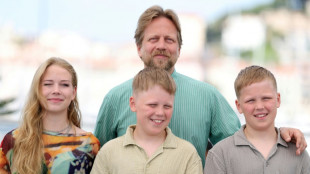
-
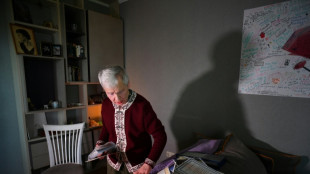 Leningrad Siege survivor, 84, fined over peace placard
Leningrad Siege survivor, 84, fined over peace placard
-
Leclerc tops first Monaco practice after early collision
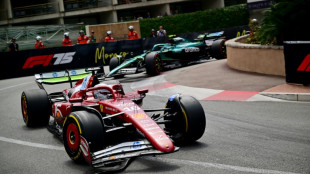
-
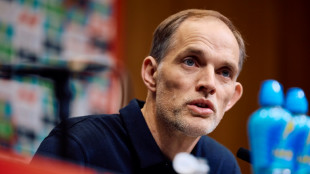 Tuchel won't let England stars leave early for Club World Cup
Tuchel won't let England stars leave early for Club World Cup
-
Sabalenka feeling 'stronger than ever' on clay before French Open
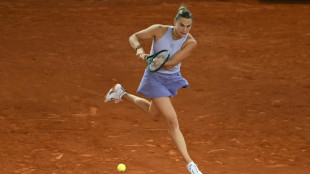
-
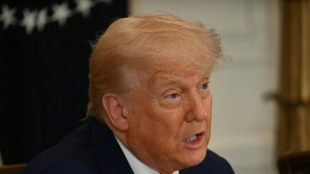 Trump fires new tariff threats at Apple and EU
Trump fires new tariff threats at Apple and EU
-
Penaud recovers from injury to start Champions Cup final

-
 France's TotalEnergies to face court in June in 'greenwashing' case
France's TotalEnergies to face court in June in 'greenwashing' case
-
Man City back plea to reduce squad size: Guardiola
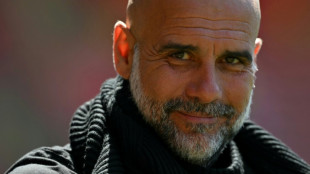
-
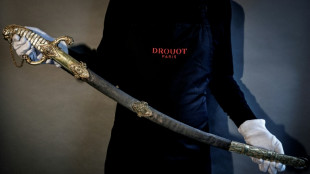 Napoleon's sword sold at auction for 4.7 mn euros
Napoleon's sword sold at auction for 4.7 mn euros
-
European stocks sink as Trump puts EU in tariff crosshairs
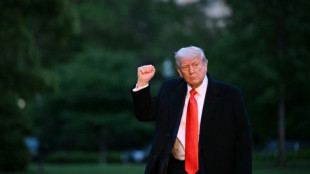
-
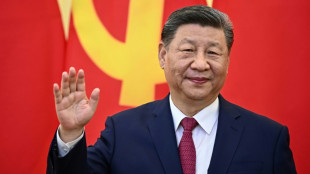 Merz, Xi discuss Ukraine war, trade woes amid global 'chaos'
Merz, Xi discuss Ukraine war, trade woes amid global 'chaos'
-
Iran, US hold new round of nuclear talks in Rome
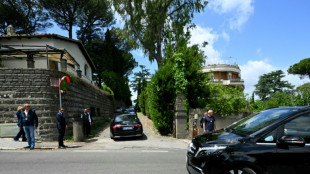
-
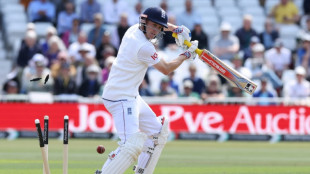 Cook strikes on debut after England run riot against Zimbabwe
Cook strikes on debut after England run riot against Zimbabwe
-
Defendants ask forgiveness ahead of Kardashian robbery verdict
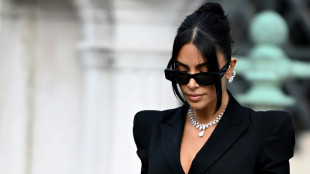
-
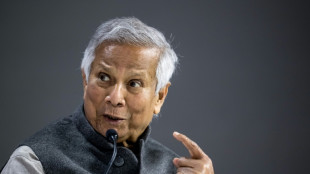 Bangladesh minister says Yunus 'not going to step down'
Bangladesh minister says Yunus 'not going to step down'
-
260 miners stuck underground after 'incident' at S.African shaft

-
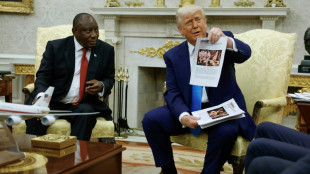 S.Africa minister rejects 'genocide' claim with statistics
S.Africa minister rejects 'genocide' claim with statistics
-
Lucu's Bordeaux-Begles eye 'neutralising' Pollock in Champions Cup final


Ban on ousted ex-ruling party divides Bangladesh voters
The banning of fugitive ex-leader Sheikh Hasina's party offers a sliver of justice for Bangladeshis demanding she face trial for crimes against humanity but also raises concerns about the inclusivity of elections.
"The government has taken the right decision," said Jahangir Alam, whose 19-year-old son was killed during the mass uprising that forced Hasina into exile in August 2024, ending the 15 years of iron-fisted control by her once all-powerful Awami League party.
"Because of her, the Awami League is now ruined," Alam said, demanding Hasina return from India to comply with the arrest warrant on charges related to the crackdown that killed at least 1,400 protesters.
"Who gave Sheikh Hasina the authority to kill my son?" said Alam, the father of Ibrahim Hossain Zahid, accusing 77-year-old Hasina of being a "mass murderer".
Bangladesh's oldest political party played a key role in the country's liberation war from Pakistan in 1971 and was once led by Hasina's late father, the nation's founding figure, Sheikh Mujibur Rahman.
"People used to hang Mujib's photo over their heads," he said. "Because of Sheikh Hasina's wrongdoing, that photo is now under our feet."
- 'Democratic space may shrink' -
Political fortunes rise and fall quickly in Bangladesh.
Hasina's government was blamed for extensive human rights abuses and protesters demanded that the interim government led by Nobel Peace Prize winner Muhammad Yunus take action.
The South Asian nation of some 170 million people last held elections in January 2024, when Hasina won a fourth term in the absence of genuine opposition parties.
Yunus promises that inclusive elections will be held by June 2026 at the latest.
Among those demanding the Awami League ban was the National Citizen's Party made up of many of the students who spearheaded last year's uprising.
Others were supporters of the Hefazat-e-Islam group and Jamaat-e-Islami, the largest Islamist political party.
Jamaat-e-Islami was banned during Hasina's time in power and several of its leaders were tried and hanged. Unsurprisingly, its members were vocal supporters of the ban.
The government banned the Awami League on May 12 after protests outside Yunus's home, pending the trial of Hasina.
"The oppressed have begun becoming oppressors," said Latif Siddiqui, a veteran Awami League member and former minister, adding that the party was wider than Hasina alone.
"She is not the whole Awami League," he said. "Many loved the party."
Human Rights Watch issued stinging criticism on Thursday, warning that "imposing a ban on any speech or activity deemed supportive of a political party is an excessive restriction on fundamental freedoms that mirrors the previous government's abusive clampdown".
However, political analyst Farhad Mazhar, an ideological guru for many student protesters, said the ban was required.
"The democratic space may shrink, but the Awami League has shown no remorse," Mazhar said.
- 'Stripping the voting rights' -
However, Jatiya Party chairman GM Quader said that banning any party stifled democracy.
"We believe in multi-party democracy," he said.
His party had been close with the Awami League under Hasina, Quader said, but it had also opposed the ban on Jamaat-e-Islami.
"We don't support banning any political party that... follows the rules," Quader said.
Jamaat-e-Islami supported Islamabad during Bangladesh's independence war from Pakistan in 1971. Rivals now question if it, too, should be restricted for its historical role.
"If the Awami League is banned for mass murder, then the question arises -- what will happen to those parties that were involved in genocide, directly or indirectly?" Quader said.
"In the history of Bangladesh, the most people were killed during the Liberation War."
The Bangladesh Nationalist Party (BNP), widely tipped to win the elections when they happen, has taken a more pragmatic approach.
Key leader Amir Khasru Mahmud Chowdhury has said there is no bar on former Awami League loyalists joining his party, so long as they had not previously worked to "suppress" the BNP.
Regardless, the upcoming vote will now take place without what was one of Bangladesh's most popular parties.
Mamun Al Mostofa, professor of political science at Dhaka University, pointed out the party had been "banned before and went through severe crises... but it made a comeback".
Shahdeen Malik, a Supreme Court lawyer and constitutional expert, said a strong opposition helped support democracy.
"AL had a vote bank of around 30 percent of the total electorate," Malik said, noting that Hasina escalated her grip on power after crushing opponents in the 2008 election.
"Due to their atrocities, they may have lost some of that support -- but it is still unlikely to drop below 20 percent," he said.
"Stripping the voting rights of this 20 percent won't benefit anyone."
G.Stevens--AMWN